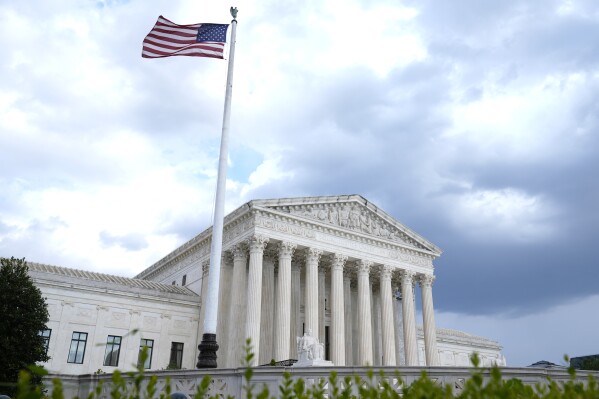WASHINGTON (AP) — President Joe Biden on Monday proposed major changes for the U.S. Supreme Court: an enforceable code of ethics, term limits for justices and a constitutional amendment that would limit the justices’ recent decision on presidential immunity.
There’s almost no chance of the proposal passing a closely divided Congress with Election Day looming, but the ideas could still spark conversation with public confidence in the court hitting an all-time low amid ethical revelations about some justices. It also comes against the backdrop of a contentious presidential election and growing Democratic outrage about recent decisions from the conservative-majority court.
Here’s a look at how the ideas, how they might work, and the possible stumbling blocks:
How would justices’ terms be limited?
Limiting how long justices serve on the nation’s highest court has broad support among Americans, polling indicates.
A poll from The Associated Press-NORC Center for Public Affairs Research in July 2022 found 67% of Americans support a proposal to set a specific number of years that justices serve instead of life terms, including 82% of Democrats and 57% of Republicans.
Biden’s proposal would limit justices to 18-year terms, a system that he says would make nominations more predictable, less arbitrary, and reduce the chances that a single president could shape the court for generations to come.
There’s a big problem: The Constitution gives all federal judges lifetime tenure, unless they resign, retire or are removed.
There are ideas about how to impose term limits without an amendment — but if such a law passed and were challenged in court the justices could end up ruling on it and it’s unclear how they’d come down, said Charles Geyh, a law professor at Indiana University and expert in judicial ethics.
How would a code of ethics be enforced?
The Supreme Court didn’t have a formal code of ethics until last year, when the justices adopted one in the face of…

